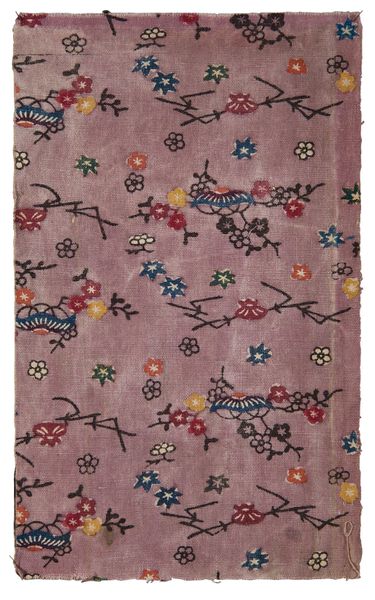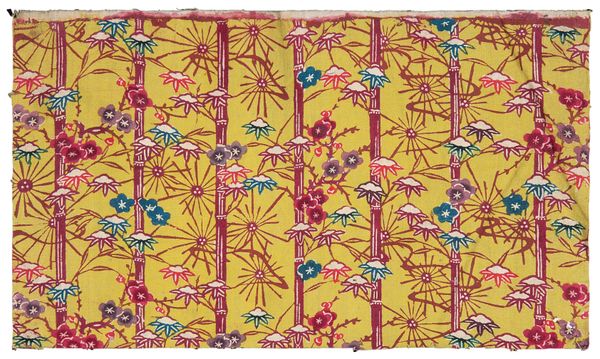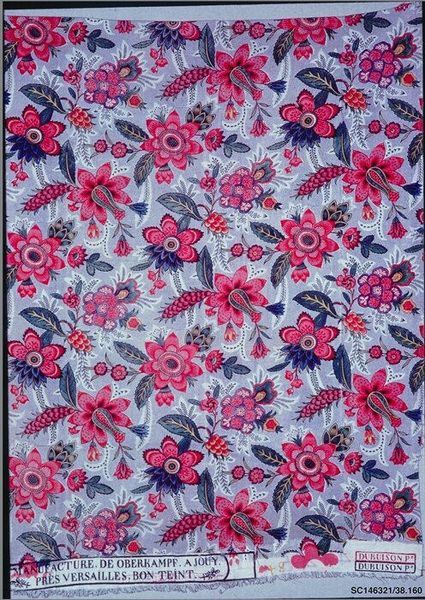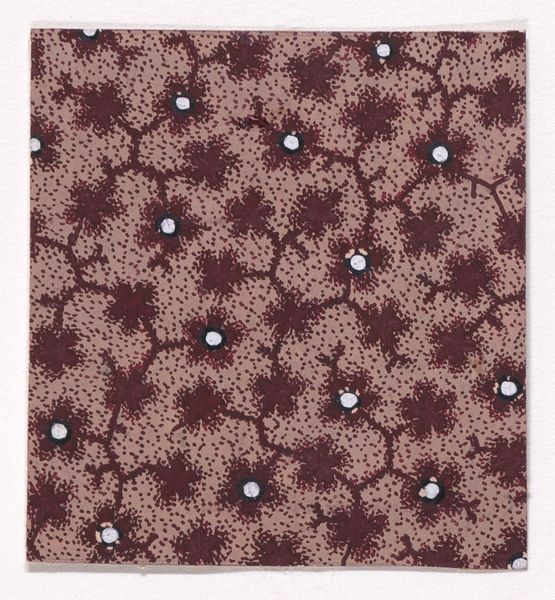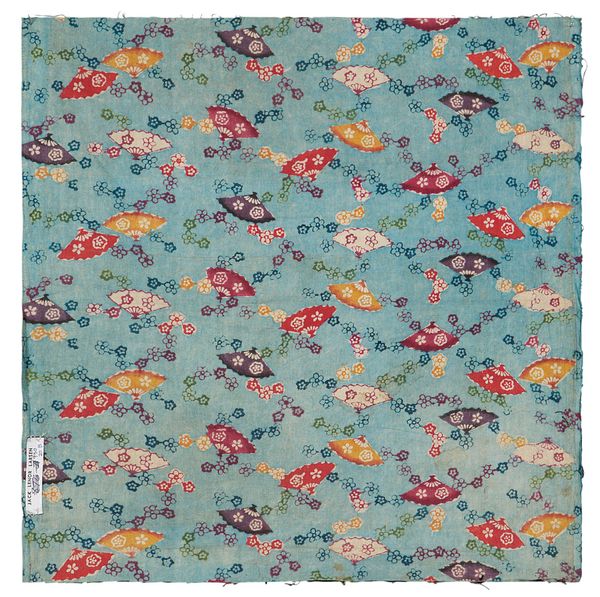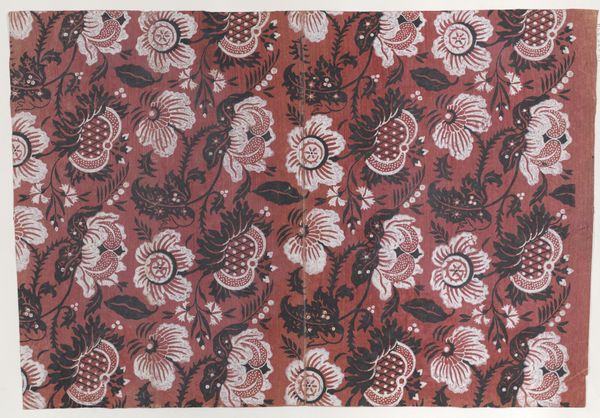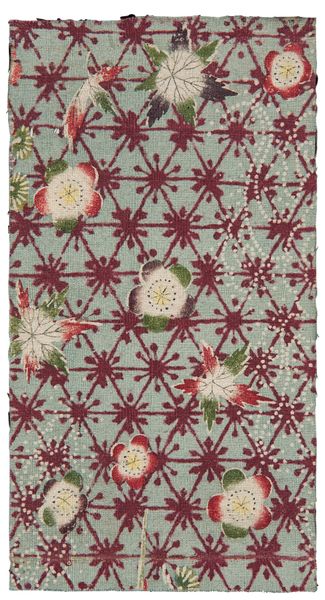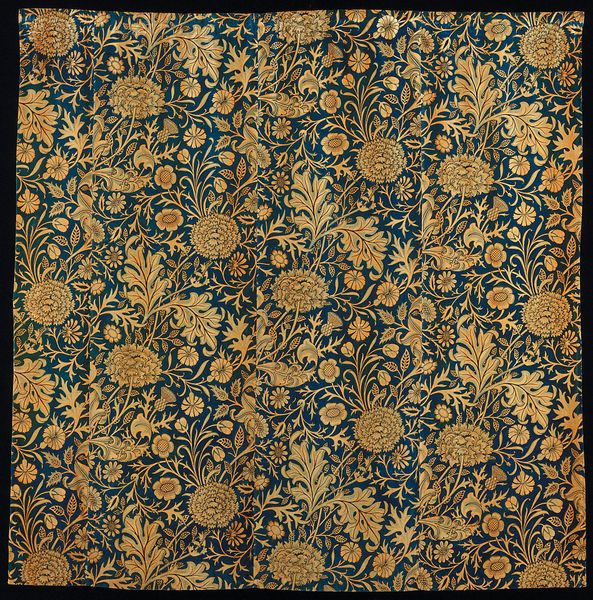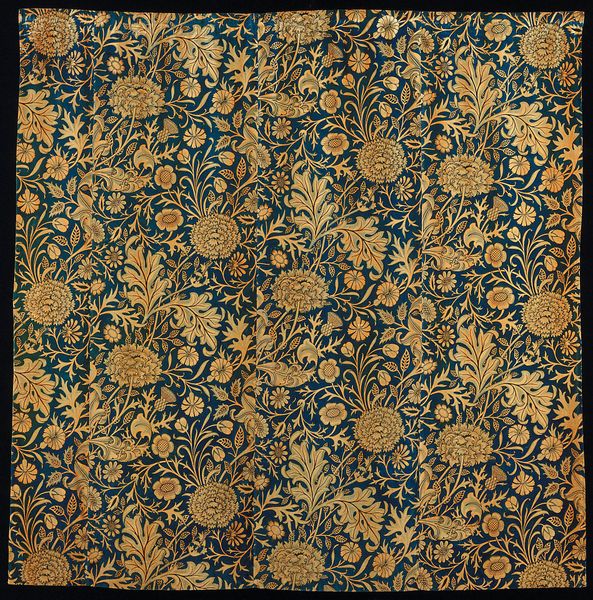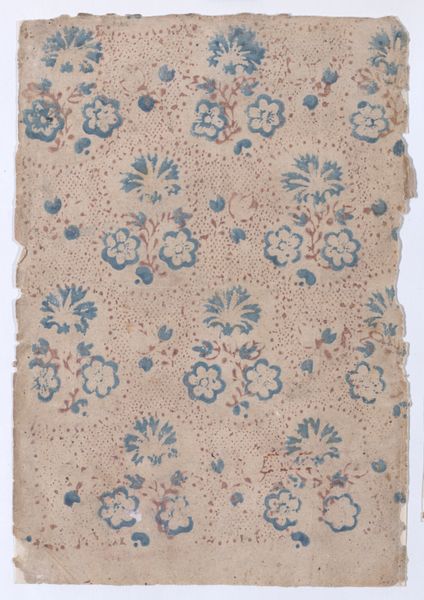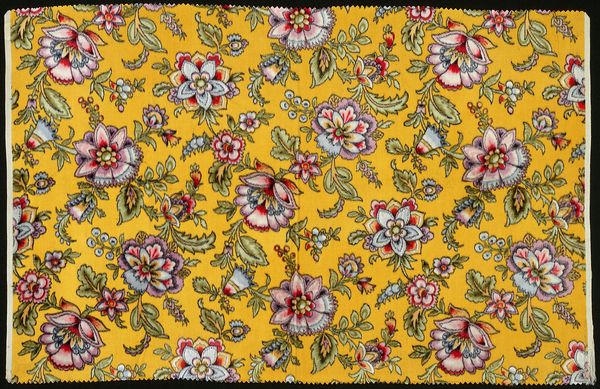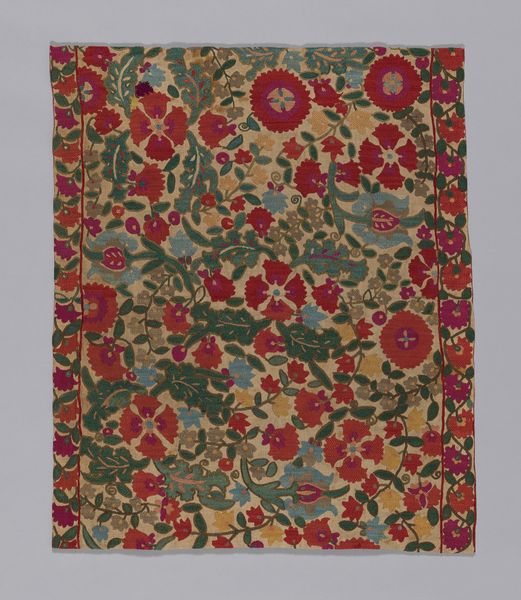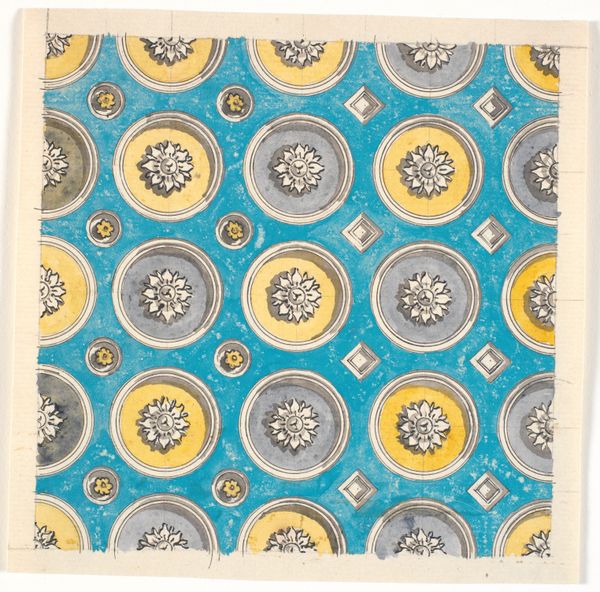
textile
#
naturalistic pattern
#
textile
#
japan
#
pattern background
#
pattern design
#
abstract pattern
#
organic pattern
#
flower pattern
#
repetition of pattern
#
pattern repetition
#
textile design
#
layered pattern
Dimensions: 12 1/2 × 12 11/16 in. (31.75 × 32.23 cm) (overall)
Copyright: Public Domain
This square fragment decorated with pine comes from an unknown maker. The material itself is a window into the values of its culture. Textile fragments like this one offer rich insights into the societies that produced them. The pine and plum motifs are associated with steadfastness and renewal in many East Asian cultures, particularly Japan, where similar textiles were produced. Traditional Japanese art often incorporates symbolic imagery drawn from nature. These images speak to cultural values and philosophical beliefs. The textile may have been produced for domestic use or as a trade good. Its aesthetic qualities reflect the broader artistic trends and design sensibilities prevalent in its time. By researching historical records and textile production techniques, we can begin to understand the social conditions that shaped this anonymous artisan’s work. The interpretation of art requires contextual understanding, reminding us that meaning is always contingent on cultural and institutional histories.
Comments
No comments
Be the first to comment and join the conversation on the ultimate creative platform.
